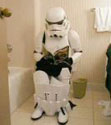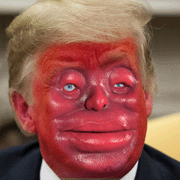|
Hey duders, I've got a very unexpected interview tomorrow for a HR graduate position at a large mining firm here in Australia. I haven't had any experience in HR, however I have worked as a teller at a bank. Is it suitable to draw on those experiences and failing that, link back to university projects/assignments? For instance: they'll likely ask me to give an example of a time I've been under immense stress, could I for example say something relating to having to juggle university + work at the same time? Or should I look towards examples in my role as a bank teller? Also when they ask what motivates me, is a suitable answer "success" and then go on to explain a few situations where I have been underachieving, in comparison with those where I've achieved what I set out to do and then explain some lessons learnt etc? Also, being a graduate role, I'm guessing they are going to be asking more 'behavioural' and situational type questions rather than technical/knowledge type questions? Any other advice is greatly appreciated! P.s. OP was awesome!
|
|
|
|

|
| # ? May 23, 2024 07:14 |
|
It doesn't really matter where your experience is from as long as you can answer the question, so just go with the best answer. I'm also skeptical about your answer to what motivates you. The way you phrase it seems like it could be easily twisted to mean that if you don't believe you can be successful then you won't be motivated. Also generally you don't want to mention things that reflect badly which dependent on the whole story underachieving may.
|
|
|
|
asur posted:It doesn't really matter where your experience is from as long as you can answer the question, so just go with the best answer. I'm also skeptical about your answer to what motivates you. The way you phrase it seems like it could be easily twisted to mean that if you don't believe you can be successful then you won't be motivated. Also generally you don't want to mention things that reflect badly which dependent on the whole story underachieving may. Thanks for that! Viewing an outsiders perspective definitely has helped and I'll make sure I word whatever I say more carefully. If someone asked you, Asur (or anyone else who wants to chime in), what motivated you, how would you respond?
|
|
|
|
Solving problems in innovative ways, working with people who are passionate about their work, challenging myself, helping other people succeed.
|
|
|
|
Crossposting from the other interview thread: What's the appropriate amount of time between the conclusion of an interview and sending a thank you e-mail? I usually send them at the end of the day I interviewed if I interviewed in the morning, since I usually thank the interviewer at the conclusion of the interview as well. Is that too soon or should I be sending these immediately after an interview?
|
|
|
|
Chaotic Flame posted:What's the appropriate amount of time between the conclusion of an interview and sending a thank you e-mail? I usually send them at the end of the day I interviewed if I interviewed in the morning, since I usually thank the interviewer at the conclusion of the interview as well. I keep hearing that within 24 hours is a good idea for emails. I wouldn't send one immediately (as in '30 seconds after a phone interview' immediately). A few hours afterwards is probably good enough, even if it is sent in the evening and they don't see it until the next day. Speaking of: I had my first real job interview on Monday and I knocked them dead thanks to the advice in this thread, the interviewing thread, and the What Color is Your Parachute? book. They said they were very impressed and I had the kind of skills they were looking for and that I will be hearing from them next week. This company looks like an excellent bunch to work for so I'm crossing my fingers! The interview itself went into overtime. We were talking for about two hours and it was actually pretty engaging and not as rattling as I was expecting (or at all, for that matter). I sent the thank-you email a couple of hours or so after the interview and as soon as I clicked "Send" I realized that I sounded like a god drat corporate robot in it despite the friendly and semi-casual discussion that the interview became after the first few minutes. Oh well, I guess confirming that I can be professional in an email and still be sociable in-person is better than sending no email at all Mak0rz fucked around with this message at 19:15 on Feb 26, 2014 |
|
|
|
So, how do I dress for something that technically isn't an interview? I applied for a position at a technical company for a job where I'll be working with physics related teaching materials. I had a phone interview, and they responded saying they'd like me to come in to take a "assessment/placement exam" on a computer. It's a job at a university, so I imagine it's fairly casual dress. And this isn't really an interview, it seems, more of a "if you place good on this we're hiring you." I'm thinking of wearing nice jeans, shoes, and a button down with maybe a tie. Something classy but not walking in a suit. Sound okay?
|
|
|
|
I work at a university and we wear business casual and would expect interviewees to be wearing a suit. Don't wear jeans.
|
|
|
|
Thufir posted:I work at a university and we wear business casual and would expect interviewees to be wearing a suit. Don't wear jeans. Khakis, button down, and a blazer sound ok?
|
|
|
|
When in doubt, dress up.
|
|
|
|
Unless their HR told you not to, just wear a suit.
|
|
|
|
just wear a suit. You will never be faulted for wearing a suit outside of some small places in bizarro startup land.
|
|
|
|
Xguard86 posted:just wear a suit. You will never be faulted for wearing a suit outside of some small places in bizarro startup land. Possibly retail or blue collar jobs. But yeah, unless you know you shouldn't wear a suit, wear a loving suit. Unless you know the industry well enough to be sure, be the guy who's new who wears a suit to the interview, that's fine.
|
|
|
|
Is there any protocol for following up after you didnt get an offer? I interviewed for a position (and nailed it, thanks to this thread), had 2 people tell me they got reference calls, went in for a 2nd interview, and a week later got an email saying they are not going to fill the position at this time. What went wrong? And why would they bring me in for a 2nd interview with the CIO just to not hire anyone? That just seems cruel.
|
|
|
|
It's happens. Maybe the CIO wasn't impressed by anyone he interviewed, maybe they were interviewing for a potential contract that didn't get signed, or the money they were going to use to hire someone got tied up somewhere else. Some companies even interview candidates regularly just to have people on file for when a position crops up (but they won't tell you that). I don't think there's much of a protocol, be polite, say you remain interested in working with them in the future if another opportunity comes up, and that's it.
|
|
|
|
Last guy we hired passed his final interview six months before he started. That's how long it took for funding to get approved. It got denied a few time in that period, but eventually someone changed their mind,
|
|
|
|
My friend and I were planning a two week trip to Asia at the end of March. When we were planning on purchasing the plane ticket, he received an email from a local SF Bay tech company to come in for an interview. He applied for this position back in late January so he assumed that they found someone else for the position. They wanted him to come in next week for an interview but he is out of the country from March 2nd - 13th so they set an interview for March 17th. He is in a predicament... he wants to book a roundtrip plane ticket to Asia from around March 24th until April 8th but he is worried about the interview and the possibility of having to come in for a 2nd round of interviews / follow up. And on the other hand, they could not even follow up with him or get in contact with him a month later.... regardless, if we were in Asia we would be connected via 4G LTE Mobile WiFi Hotspot 24/7 so he will have access to emails / skype. I completely understand his situation but wondering what you guy's think. He considered potentially emailing the recruiter that set up the interview but doesn't feel comfortable having them know that he might potentially be out of the country again right after his interview. How should he approach this? Busy Bee fucked around with this message at 05:28 on Feb 28, 2014 |
|
|
|
FrozenVent posted:Last guy we hired passed his final interview six months before he started. question for people who have worked longer than the past 7 or so years: Is this a recession thing? I know 6 months is kind of an outlier but it seems like these really long interview processes or sudden position cancellations happen an awful lot, and I am wondering if its just the way things go or a new terrible twist.
|
|
|
|
Busy Bee posted:My friend and I were planning a two week trip to Asia at the end of March. When we were planning on purchasing the plane ticket, he received an email from a local SF Bay tech company to come in for an interview. He applied for this position back in late January so he assumed that they found someone else for the position. They wanted him to come in next week for an interview but he is out of the country from March 2nd - 13th so they set an interview for March 17th. If it comes up, tell them he's out of town but don't specify where? They shouldn't ask and if they do it's probably out of conversational politeness.
|
|
|
|
the littlest prince posted:If it comes up, tell them he's out of town but don't specify where? They shouldn't ask and if they do it's probably out of conversational politeness. He has his first interview on March 17th and a week later he could potentially be out of the country for two weeks from March 24th - April 8th. He is worried that if they follow up with him while he is out of the country or wanted him to come in for another round of interviews it might seem a bad sign to be not available.... On the other hand, he could not even get the job and/or they follow up with him a few weeks down the road. Would this seem unprofessional from a recruiters point of view if the candidate they are interested in is suddenly out of the country? Busy Bee fucked around with this message at 01:03 on Mar 1, 2014 |
|
|
|
Two questions: 1. Bottom line, up front: Is it a terrible faux pas to wear the same suit to a followup interview? Last week, I interviewed for a position in my sharpest suit (I have other suits, but none that look quite so good) and I've been asked to come in for a final interview for the position with the previous interviewer's boss. Should I stick with the suit that looks good or will I just be broadcasting that I'm some ill-suited poor by doing so (this is for a high-paying upper management position if that matters)? 2. I'm in the final round of interviews for the same upper management position in two competing companies in the same metro area. Both the final interviews will be happening within a week of each other. Is this something I should be candid about with them? The obvious answer is "No, just keep your stupid mouth shut," but I don't want to break any unwritten rules. I'm just getting out of the military and moving into the corporate world, so I don't know if there's some unapparent custom here.
|
|
|
|
Busy Bee posted:Would this seem unprofessional from a recruiters point of view if the candidate they are interested in is suddenly out of the country? Why would it? People take vacations.
|
|
|
|
To the travel question, nothing ever needs to come off as unprofessional if he acts like a professional. Tell him to go on the trip, check email occasionally, and if they write respond with something like "That sounds terrific. I'm traveling at the moment but will be available at xyz date and very much look forward to meeting again." Always frame everything so that they see things they way you want them to.ripped0ff posted:Two questions: 1) Same suit is fine if it's your best one. Vary up the shirt/tie and they won't even know it's the same suit (if it's even the same person, which it sounds like it's not) 2) The negotiation thread talks about this, I think. My feeling is don't discuss it. You're not a major league ballplayer and you're not going to start a bidding war. However, if you get an offer from one it empowers you to go a little alpha on your negotiations with the other since you know you're definitely getting something. Use the leverage in how confidently you negotiate, not necessarily as something to explicitly hold over them, which can look cheesy and backfire. But I've never been in that position and others might have more nuanced advice.
|
|
|
|
its not uncommon for people who wear suits a lot to buy 2 or 3 identical suits to make life easier. So, unless you've got a stain or something its basically impossible to tell if its the same suit anyway.
|
|
|
|
How do I avoid talking badly about my last employer when I left because I thought their policies were immoral? I thought I had it down, but according to feedback I got, I don't. Is something like "We had a difference in business ethics" good enough, or does that sound like I was stealing?
|
|
|
|
What were the immoral policies?
|
|
|
|
Just standard credit card BS, 30% interest rates and such. I'm just a hippie ill-suited to the world of finance,so I quit rather than letting my quality of work and liver go downhill.
|
|
|
|
Don't make common business practices a moral issue, talk to leaving a job field that just wasn't suited to you. In fact steer the conversation towards how the experience there helped guide you towards the realization that what you really wanted to do was [thing you are applying to]. Remember, you're always running towards a job, and not away from any. It also helps keep you focused forwards on questions about things like this.
|
|
|
|
22 Eargesplitten posted:I left because I thought their policies were immoral 22 Eargesplitten posted:Just standard credit card BS, 30% interest rates and such
|
|
|
|
ripped0ff posted:Two questions: There's a suit thread that can give more help on this, but as general advice, try and make sure that your first suit purchases are plain navy/grey/charcoal. That way you have more options for shirt/tie combinations. In this situation, even if you wore the same suit, you could switch around your shirt and tie and look strikingly different.
|
|
|
|
Readman posted:There's a suit thread that can give more help on this, but as general advice, try and make sure that your first suit purchases are plain navy/grey/charcoal. That way you have more options for shirt/tie combinations. In this situation, even if you wore the same suit, you could switch around your shirt and tie and look strikingly different. Unless you like deep dark rabbit holes this post is all you need. Enter the suit thread at your own peril (although it is a great read, but it's intense...)
|
|
|
|
Suiting is an intense subject.
|
|
|
|
I'm not really sure if this is the right place to ask about this, but I figure I'll give it a shot. The manager at my job (a plasma center) holds quite possibly the worst interviews ever. Typically all he asks are questions like "Do you have reliable transportation, what's your availability, do you have problems with blood or needles, when would you be able to start?" There are a number of employees I now work with, and former employees that I've stayed friends with, who say that they were in the door and out in under five minutes. As you can imagine, a lot of terrible people get hired. I'm the training coordinator and am ultimately responsible for the training and ongoing assessment of the employees. Myself and one of the supervisors have become pretty fed up with the people being hired, and we've taken over the interviewing process. The only issue is that neither of us have any sort of interviewing experience, and quickly realized after we held a few interviews on Friday that we weren't coming up with questions that are any better. The positions we're holding interviews for are entry level positions and the only real requirements are a high school diploma (or equivalent) and being able to speak English. There are plenty of guides on how to do well as an interviewee, but what about being an interviewer?
|
|
|
|
I've been on both sides of interviewing so maybe this will help. At a basic level, identify what attributes/experience you want in an employee and ask interviewees to give examples of their experience in that area, how they've handled themselves before, etc. It's important to ask questions not just about experience, but also about work habits, how they task manage, how they work with other people, and so on. What are all the ideal qualities you want in an employee? For example, I interviewed for a reasonably senior public service role (in Australia) recently. The questions were asking for examples of things like: - Communicates with influence - A time when I had to influence a stakeholder to get a result that the government wanted/convince the stakeholder of the merits of government policy/etc. - Task management - A time when my regular work schedule was interrupted by an urgent new priority, and how I managed both the new priority and maintained my existing workflow. - Works well in a team - Have I ever had conflicts with other staff at work, and how I managed that. Also how well you build networks, and then leverage those networks in support of the government's agenda. - Can produce policy briefs in sub-optimal circumstnaces - A time when I had to produce a brief for a Minister or senior Departmental official but didn't have complete information, and how I managed that. - Analytical ability - A time when I had to research and consider a range of options for a policy proposal (ie. what sources I used, how I weighted them, etc.). Even for lower-level positions, this works well. Eg. if you're interviewing for a receptionist, you could ask them about how busy their previous job was (how many customers per hour maybe), what they had to do to prepare for the day, what other tasks they had to do in addition to answering phones, how they juggled this, etc. If you're interviewing recent grads, then maybe you'd ease up on the questions about experience, and ask questions they can relate to a bit better. Eg. instead of asking how you juggled multiple work assignments, ask how they managed essays and work, etc.
|
|
|
|
Readman posted:I've been on both sides of interviewing so maybe this will help. At a basic level, identify what attributes/experience you want in an employee and ask interviewees to give examples of their experience in that area, how they've handled themselves before, etc. It's important to ask questions not just about experience, but also about work habits, how they task manage, how they work with other people, and so on. What are all the ideal qualities you want in an employee? Building on this, whatever questions you decide to ask, take the time to create a standardized rubric for each question so that both interviewers are evaluating the same thing and scores can be compared/averaged/what have you. Quick Example: For the first team building question suggested: 1 (Poor Answer) - Applicant does not describe a situation in which there was conflict with team members or describes a situation with conflict in which they were uninvolved. 2 3 (Adequate Answer) - Applicant describes a situation in which there was conflict with team members and describes ways they handled the situation. Able to explain if/how the situation was resolved and their role leading to that resolution. 4 5 (Strong Answer) - Applicant describes a situation in which there was conflict between team members and describes ways they handled the situation. Able to explain if/how the situation was resolved and their role leading to that resolution. Identifies causes of conflict as well as ways to minimize conflict in the future. While that's a rough example (I'm busting this out on my phone), you get the idea. You want something that lets everyone evaluate on the same playing field so that one person's 3 isn't another person's 5. With a standardized rubric, you have behavioral anchors for different ratings.
|
|
|
|
EDIT: Already taken care of.
Chaotic Flame fucked around with this message at 18:20 on Mar 12, 2014 |
|
|
|
Had a panel interview from 10-4:30 yesterday. It was pretty grueling and I'm completely drained. I hope everything goes well!
|
|
|
|
I'm realizing how different my previous interviewing experiences really were now that I'm applying to corporate/research jobs. I have an interview in two weeks and it's a panel interview. Normally, this would be fine, but the panel consists of a senior research associate (who I've already spoken with during a phone interview), the VP of Strategic Planning, an EVP and Director of all Research at the company, and the COO of the company. The company is a fairly small think tank attached to a consulting firm. With such variability in level of the interviewers, I'm not really sure what to expect for this interview. I'm not sure if it will be technical, behavioral, fit, etc. I'm not entirely sure how to prepare for this other than just prepare for every type of interview and go from there.
|
|
|
|
Crossposting from the interviewing ultrathread. I would like some insight: I had an interview for a job that seemed very appealing last Monday, February 24. The interview went wonderfully and without a hitch and they said they'll for sure call me back. I'm not sure if they gave a timeframe (they may have said "next week," but I'm probably misremembering). As of today it has been sixteen days since the interview. It's still probably too soon, but I'm getting anxious. After how long (if at all) would be a good idea to give them a call/email and remind them that I exist?
|
|
|
|

|
| # ? May 23, 2024 07:14 |
|
Applied for a job at a car dealership, filled out probably a page of info on their website (just who I am). They sent me an e-mail, said Mr. Manager would be calling me, sure enough Mr. Manager called me the next day, "Come on down Monday at 10AM to fill out an application. *click*" So, I go there to fill out a massive 10 page application, including the 300 questions about how lazy you are and other poo poo. I fill out this big pile of paper work, he comes over to collect the papers, doesn't even look at them and says "Thanks for coming in, we're not hiring." Drops the papers in a trash can right in front of me. Seriously??? gently caress that poo poo. I never have had a compelling desire to buy a Honda and if I do ever want to buy a Honda I know where not to go. On the bright side, I am going in for an interview at Target tomorrow, and eventually the local plumber/pipe fitters union will interview me. Plumbers union only wants a 30% on the entry test, I scored 90% but I'm certain nepotism will kick-in and I won't get in. While I was testing, another kid failed the test that day, he started yelling at the test administrator (who is not part of the union) about how his boss is on the selection committee.
|
|
|





















